-
Interview with Gavin Lawrence
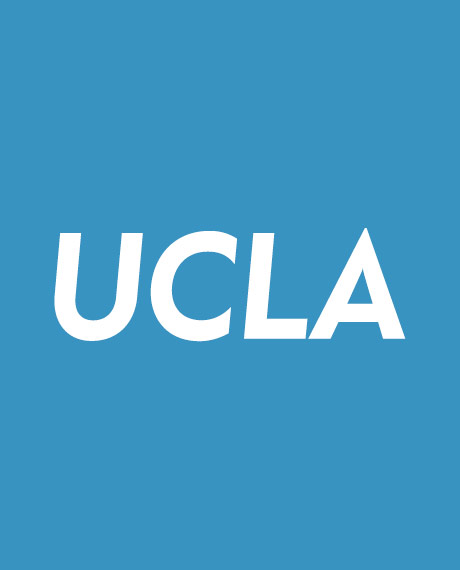
Gavin Lawrence

Jenna Donohue
Gavin Lawrence is Professor of Philosophy at UCLA. His research focuses on ethics and ancient philosophy. His article “The Deep and the Shallow” will appear in a forthcoming edited volume entitled Phillippa Foot on Goodness and Virture. He was interviewed by Jenna Donohue and Professor Seana Shiffrin. Jenna is a fifth-year student in the Department of Philosophy. She is interested in topics in ethics, meta-ethics, and their intersection.
JD: What initially brought you to philosophy?
GL: Desperation. No, I was set a task of writing on history, about Thucydides’ History of the Peloponnesian War and began to be interested in philosophy of history. I went and I talked to a friend of my parents, Jane Degras, who had played chess with Stalin’s son; a leftist of the 30s, a chain-smoker. She was really interested in history and got me going and got me to read E. H. Carr’s What is History? I was intrigued. -
Interview with Emily Rosenfelt
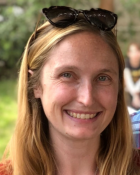
Emily Rosenfelt
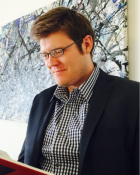
Jordan Wallace-Wolf
Many of UCLA’s undergraduate philosophy majors aspire to go to law school and to use their philosophical training in the field of law. A career in law can take many paths, and there are many ways of being a lawyer. To highlight some of these varied paths, we feature short profiles of four undergraduate alumni who are currently lawyers. We hope their stories will inform and inspire those students who dream of a career in law.
All of the interviews were conducted by Jordan Wallace-Wolf. Jordan is pursuing the joint J.D./Ph.D. in our Law and Philosophy Program. He has completed the J.D. and is currently writing a dissertation on privacy. Emily Rosenfelt ’05 is an attorney with the Los Angeles Alternate Public Defender.
JW: Please tell me a little about what you do.
ER: I am a public defender [in] the Alternate Public Defenders Office. I represent people in all different types of felony cases—from child abuse, to murder, to gang cases, to assault and robbery. One of the things that I like about my job is that I spend many, many hours with the people that I represent, just talking to them, not always about cases, but just about life. The prosecutor, the district attorney can’t do that because their job is to follow the evidence where it goes, and then their job is ultimately, if they believe the charges are true, to convict my client. They often have a very shallow view of the defendants. Defense attorneys in general come away with a much more nuanced understanding of who the person is, you see there are these complexities and different reasons for the way people act. And they’re not as black and white as they’re made to seem. -
Interview with David Pettit
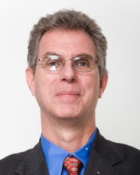
David Pettit

Jordan Wallace-Wolf
David Pettit ’72 is Senior Attorney at the Natural Resources Defense Council. Jordan is pursuing the joint JD/PhD in our Law and Philosophy Program. He has completed the JD and is currently writing a dissertation on privacy.
JW: Tell me a little bit about your background.
DP: I graduated in ‘72 from UCLA with a degree in philosophy and in ’75 from UCLA Law School. I’ve been a litigator my whole career. I’m now at the Natural Resources Defense Council, which is one of the big green environmental groups. I do litigation here, also some policy work, largely in the areas of air quality, climate change, environmental justice, the intersection of all of those. -
Interview with Matthew Heyn

Matthew Heyn

Jordan Wallace-Wolf
Matthew Heyn ‘00 is Deputy Attorney General with the California Department of Justice. Jordan is pursuing the joint JD/PhD in our Law and Philosophy Program. He has completed the JD and is currently writing a dissertation on privacy.
JW: Describe your current job for an audience not familiar with law.
MH: I’m a Deputy Attorney General with the California Department of Justice. I represent California and its agencies in all aspects of civil litigation. Civil litigation is a wide area of practice that encompasses everything except putting people in jail. For example, I currently represent the State and its agencies in litigation arising out of the 2015 oil spill in Santa Barbara. I also represent the Department of Insurance in a hotly-contested dispute as to whether an insurance company should be required to give rebates to the purchasers of homeowners’ policies. -
Interview with Corina McIntyre
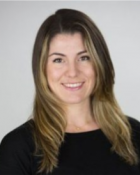
Corina McIntyre

Jordan WALLACE-WOLF
Corina McIntyre ’12 is a corporate associate at Debevoise & Plimpton. Jordan is pursuing the joint JD/PhD in our Law and Philosophy Program. He has completed the JD and is currently writing a dissertation on privacy.
JW: Can you describe your current position?
CM: I’m a corporate associate in the New York office of the law firm Debevoise & Plimpton. I’m in my first year, which means I’m in my first set of rotations in the corporate department. I am working in the Corporate Intellectual Property group. Next year it’s unknown where I would rotate. It would be another department in the corporate group, something complementary to what I’m doing now, mergers and acquisitions, or private equity, or capital markets. This category of firm is referred to as Big Law. We have an offices in New York, Washington, DC, and then a number of other offices internationally. We’re a very New York-centric firm, we’ve got over a thousand people that support just the New York operation alone. -
Interview with Olufemi Taiwo
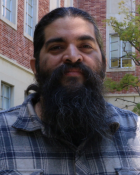
David Reyes
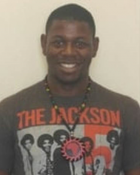
Olufemi Taiwo
Olufemi Taiwo is a fifth-year Ph.D. student in the UCLA Department of Philosophy. His dissertation is Autobiography. He has accepted an Assistant Professor position at Georgetown University. David Reyes ‘18 is a philosophy major and presented at UCLA Undergraduate Research Week in May 2018.
OT: What brought you to philosophy? The ideas, thinkers, people around you? What is it that you saw in this discipline?
DR: I guess the circumstances of me growing up. My parents emigrated here from Nigeria in the ‘80s, and I was growing up in conservative southwestern Ohio. So on the one hand, I knew about all these anti-black stereotypes and [had] one unrepresentative view of America from [the] pretty affluent suburb I grew up in. And then I knew that there was something up with Nigeria—it was “underdeveloped” were the terms people used—and all this next to the fact that all the Nigerian people I knew were hyper-educated, in skilled professions, or had advanced degrees. So stack any two of those up against the other one, and you get pretty confused. I guess you could say that was my first set of philosophical questions. “What’s up with all these things?” I majored in political science and economics, and the way that those fields were studied didn’t give me the answers I thought I wanted. So I thought: “Where do you get to question some of the assumptions that seem to me to be working out in problematic ways?” And that was philosophy. -
Interview with Sam Cumming
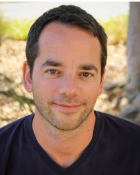
Sam Cumming

Tristen Cardwell
Sam Cumming is Associate Professor of Philosophy at UCLA. His research focuses on philosophy of language, philosophy of mind, literature, and film. His co-authored article “Conventions of Viewpoint Coherence in Film” appeared in Philosophers’ Imprint in 2017. He was interviewed by Tristen Cardwell. Tristen is a first-year student in the Department of Philosophy. She is interested in topics in philosophy of language, logic, and philosophy of mind, especially self-reference and self-consciousness.
TC: I know you received your Ph.D. from Rutgers. But where did you do your undergrad degree?
SC: I’m from Melbourne, Australia, and I did it at the University of Melbourne. I was also an English major when I was an undergrad, and I mostly satisfied things in that major until my third year when I went on exchange to UC Berkeley, and that’s where I got a lot of the philosophy part of my degree done. -
Interview with Sherrilyn Roush
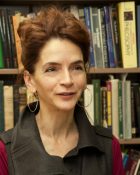
Sherrilyn Roush
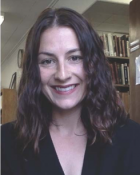
Sarah Beach
Sherrilyn Roush is Professor of Philosophy at UCLA. Her research focuses on philosophy of science, epistemology, and philosophy of medicine. Her article “Closure Failure and Scientific Inquiry” appeared in Res Philosophica in 2017. She was interviewed by Sarah Beach. Sarah is a third-year student in the Department of Philosophy. She is interested in meta-ethics, social and political philosophy, and feminist philosophy.
SB: Where are you from? Is this your first time living in Los Angeles? If so, how are you liking it so far?
SR: I grew up in southwestern Pennsylvania, sometimes referred to as “Pennsyltucky.” It’s now Trump country, though it was a Democratic stronghold when I was growing up; it’s former rust belt, underprivileged, and a little backward, but proud, and very beautiful. This is my first time living in Los Angeles, although I lived in California for 8 years when I was at UC Berkeley, and I’m liking it very much. I like the sun and the heat. And the activity, it’s great, a vibrant city. -
Interview with Nathan Salmon
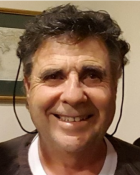
Nathan Salmon

Christian De Leon
Nathan Salmon ’79, UCLA philosophy graduate alumnus, was interviewed by Christian De Leon. Nathan is a professor in the Department of Philosophy at the University of California, Santa Barbara. His research focuses on the philosophy of language, the philosophy of logic, and metaphysics. Christian is a third-year Ph.D. student in the Department of Philosophy, with research interests in philosophy of language, ethics, and political philosophy.
CD: You did your undergraduate and graduate work at UCLA. Was that deliberate, or just how things happened to work out? Did you find that there was a big difference after the transition?
NS: I was a philosophy student at UCLA through the 1970’s. I transferred there from a community college in 1971 and earned my Ph.D. in 1979 while I was a faculty member at Princeton. Once I was offered admission to the UCLA philosophy graduate program in 1973 I couldn’t fathom going anywhere else. The transition from college to graduate school is typically a phase transition but in my case it was completely continuous. The only change I noticed was that as a graduate student I was suddenly allowed to address my teachers by their first names—except for Alonzo Church. Church was an amazing man in many ways. Even his colleagues and other leading logicians normally addressed him as ‘Professor Church’.

